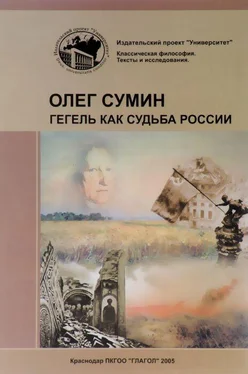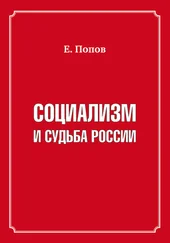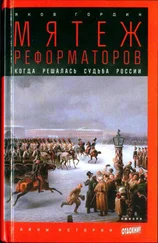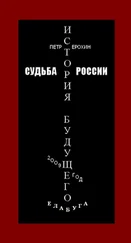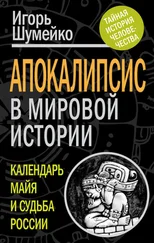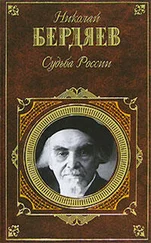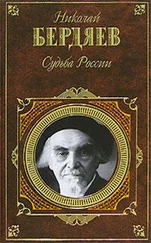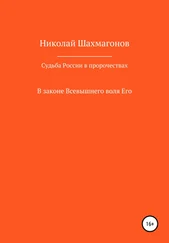Евгений.
Sumin, Oleg. Hegel as Russia’s destiny: 2 nd edition, enlarged and revised. — Krasnodar: PKGOO «Glagol», publishing project «University» (Series «Classic philosophy. Texts and studies»), 2005.
The author formulates the thesis that the metaphysical grounds for the two world wars and the opposition of the post–war two different social systems are actually the absolute developing its objectiveness by means of these events and continuing to present the ideal essence of contemporary history as well. The author ascertains that the destiny of the absolute idealism can be understood only on the grounds of the same philosophy.
Assuming as a basis the position of Hegel’s philosophy that mind is the only real justification of the universe, the author also argues that in the course of world history mind manifests itself as «Absolute Spirit», which is defined as reason of art, religion and philosophy. The rational consideration of world history consists in revealing different eras of art, religion and philosophy.
In his philosophy of history Hegel shows that the age of art was realized immediately in history of the East and properly in history of Ancient Greek culture; the religious idea fully manifested itself in West Christian culture. But Hegel could not find a philosophical age in world history. According to the author’s view this is explained by the fact that the philosophical era during Hegel’s time was not yet available, for the very philosophic idea had just been formulated by Hegel himself. In Hegel’s philosophy this idea exists only in a subjective form. Thus, the idea lacks for the moment of objectiveness. That is why at once it starts its own historical manifestation and objectivisation. The whole post-Hegelian era including the opposition of fascism and communism is an era of objective realization of the philosophic idea. After this era is objectively realized not only the religious–aesthetical form but also the very form of philosophic rationality.
Sumin, Oleg. Hegel als das Schicksal Russlands: 2. Aufgabe, verbesserte und ergänzte. — Krasnodar: PKGOO «Glagol», Verlagsprojekt «Universität» (Serie «Klassische Philosophie. Texte und Untersuchungen»), 2005.
Der Autor formuliert die These, dass als methaphysischer Grund zweier Weltkriege und des Nachkriegswiderstandes zwei verschiedener Sozialsysteme die Ideen des absoluten Idealismus von Hegel treten, die durch diese Geschehnisse ihre historische Objektivität entwickeln und sie bleiben als Ideenwesen in der modernen Geschichte.
Der Autor behauptet, dass das Schicksal der Philosophie des absoluten Idealismus nur durch dieselbe Philosophie begriffen werden kann.
Auf Grund der Philosophie von Hegel, dass die Vernunft der einzige wirkliche Grund des Universums ist, behauptet der Autor, dass die Vernunft in der Weltgeschichte als «absoluter Geist» realisiert wird, der auch die Vernunft der Kunst, Religion und Philosophie ist. Die vernünftige Betrachtung der Weltgeschichte bedeutet die Ermittelung der Epoche der Kunst, Religion und Philosophie.
In seiner Philosophie der Geschichte zeigt Hegel, dass die Epoche der Kunst unmittelbar in der Geschichte des Ostens und eigentlich in der griechischen Kultur verwirklicht wurde; die religiöse Idee wurde in der westlichen christlichen Kultur enthüllt, aber Hegel findet keine philosophische Epoche in der Weltgeschichte. Nach der Meinung des Autors geschieht das, weil es in jener Zeit, in der sich Hegel mit philosophisch–historischen Fragen beschäftigt, noch keine philosophische Epoche in der Geschichte gibt, denn die Idee der Vernunft als einer philosophischen Wissenschaft nur von Hegel selbst formuliert wurde. In seinem System der Philosophie existiert diese Idee nur in der subjektiven Form. Die Idee braucht solcherweise einen Moment der Objektivität. Deshalb beginnt sie sofort ihre historische Manifestation und Objektivierung. Die ganze Nachhegelepoche, der Zusammenstoss des Kommunismus und des Faschismus einschliessend, ist die Epoche des objektiven Gesetztseins der philosophischen Idee, der Idee der philosophischen Wissenschaft. Nach dieser Epoche in der Geschichte nicht nur religiös–ästhetische Formen des Vernünftiges, sondern auch die philosophische Vernünftigkeit gesetzt sind.
Soumine, Oleg. Hegel comme la destinee de la Russie: 2eme édition, revue et complétée. — Krasnodar: PKGOO «Glagol», projet éditorial «L’Universite» (Sérié «La philosophie classique. Les texts et recherches»), 2005.
L’auteur développe la these que la base métaphysique de deux guerres mondiales et de la confrontation de deux systèmes sociaux differents est l’idéalisme absolu de Hegel qui au moyen de ces événements développe son objectivité et de facto continue a constituer la nature idéologique de l’histoire contemporaine. L’auteur affirme que la destinee de l’idéalisme absolu ne peut etre comprise qu’en partant des positions de cette meme philosophie.
En partant de la these de la philosophie de Hegel que la raison est la seule véritable raison d’etre de l’Univers, l’auteur affirme aussi que dans l’histoire mondiale la raison se manifeste comme «l’esprit libre» defini comme la raison de l’art, de la religion et de la philosophie. L’examen rationnel de l’histoire consiste a découvrir dans celle–ci les époques de 1’ art, de la religion et de la philosophie.
Dans sa philosophie de l’histoire Hegel démontré que l’epoque de 1’ art est realisee immédiatement dans l’histoire de l’Orient et proprement dans la culture grecque; que l’idee religieuse a trouve sa manifestation la plus complété dans la culture chrétienne de l’Occident; mais dans l’histoire mondiale aucune epoque de la philosophie n’est decouverte par Hegel. Selon l’auteur, il en est ainsi car au temps de Hegel l’epoque de la philosophie n’etait pas encore venue dans l’histoire, l’idee de la raison en philosophie ayant ete tout juste formulée par Hegel lui–meme. Dans la philosophie de Hegel cette idee n’existe que dans sa forme subjective. Elle manque donc du moment d’objectivité. Voila pourquoi tout d’un coup elle commence a se manifester dans l’histoire et a «s’objectiviser». Toute l’epoque qui a suit celle de Hegel et qui comprend la période de confrontation du fascisme et du communisme, est une epoque d’objectivisation de l’idee philosophique. Apres cette epoque dans l’histoire ce n’est pas seulement la forme religieuse et esthétique du raisonnable qui s’objectivise déjà, mais aussi la forme de la raison philosophique elle–meme.
ПО ВОПРОСУ ОПТОВОЙ РЕАЛИЗАЦИИ КНИГИ ОБРАЩАТЬСЯ В ООО «УНИВЕРСИТЕТСКАЯ КНИГА»:
Москва — тел. (095) 915–32–84
Санкт–Петербург — тел. (812) 323–54–94
Научное издание
Сумин Олег Юрьевич
ГЕГЕЛЬ КАК СУДЬБА РОССИИ
Печатается в авторской редакции
В оформлении книги использованы фрагменты картин
А. Герасимова «Крик перепелов во ржи», К. Васильева
«Нашествие», П. Кривоногова «На Курской дуге»
Оригинал–макет подготовлен П. Е. Бойко
Корректор Т. П. Горшкова
Компьютерная верстка Э. З. Люманова
Художественное оформление
Ю. С. Демидова
Подписано в печать 03.10.2005. Формат 60х84
Бумага офсетная 80 г/м 2Объем 364 с.
Гарнитура Таймс.
Читать дальше
